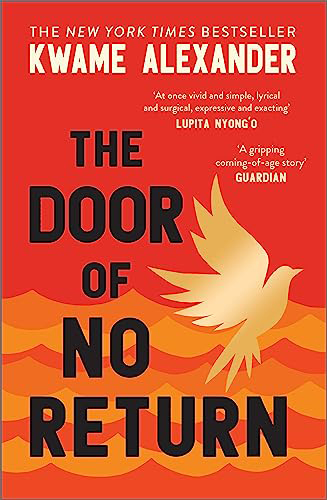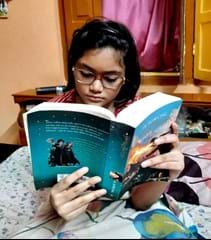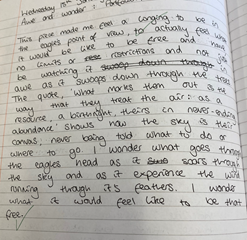Our second book of 2023-24 was The Door of No Return by Kwame Alexander. We loved this verse novel, the first of a new trilogy. To avoid spoilers if you would like to read along with us, notes from the discussion are attached here.

In my last blog, I explained the format of our meetings – discussing likes, dislikes, puzzles and patterns. On the surface these headings can seem quite a simple way to structure a discussion, so it can be a real surprise to discover how far they can take students in thinking about a text. The basic principle is ‘teacher hold back’: don’t jump in with your own views until they have run out of things to say. Once the teacher has made a pronouncement, it is often seen as the ‘right’ answer and closes down the discussion. Instead you might make interventions that encourage more depth such as ‘tell me more about…’, ‘what made you think…’, ‘so are we saying that…’, ‘Ah! That links to what X was saying about…’
When we talk about ‘likes’ and ‘dislikes’ in our teacher group, we go round the group first, before moving to a more free-for-all discussion. This is so that everyone gets a chance to speak (there are 16 of us). This would work with a student book group, but with a whole class a ‘think, pair, share ‘might work better so as not to make the exercise too tedious. Contributing an idea that has similar to someone else's comment is encouraged. In this way, points of agreement and patterns in the text begin to emerge. In discussing likes and dislikes students are developing their personal taste, but also perhaps having their thoughts challenged. It often happens that one person’s like is another person’s dislike!
With teachers, a lot of useful information emerges in the likes and dislikes stages because we tend to jump quite easily into talking about character development, structure, language and so on. With students, at first, comments at this stage might be more limited in scope and the discussion really starts to develop around the ‘puzzles’ and ‘patterns’.
When looking at ‘puzzles’, allow students to range freely between different kinds of puzzle. For example: questions for the writer about their choices; things that are deliberately mysterious or unsolved in the text; raising aspects of the texts that they struggled with. Again, hold back – puzzling through together and pondering each other’s questions takes students deeper into the text.
In discussing ‘patterns’, students are beginning to look much more at the text as a construct, stepping back and thinking about the choices a writer has made. In looking at patterns within the text, they are starting to hone their literary skills and discussions about themes, symbols and other forms of echoing or repetition can emerge. Encourage students to think quite widely about what connections they make outside the text as well. Considering personal experience can lead to discussions about realism, point of view, or about ways of presenting certain topics. Connecting with other things they have watched or read helps them to think about how this individual text fits into a wider context. This can lead to discussions about genre or audience, or thinking about how different writers and other media have chosen to deal with a similar topic.
To find out more about the approach, read Aidan Chamber’s book Tell Me.
The book we will be discussing next is Needle by Patrice Lawrence.
Books recommended by KS3 teachers and librarians in the EMC group:
The Beholders by Hester Musson (New, Gothic horror – only in hardback at the moment)
A Natural History of Ghosts by Roger Clarke (Adult non-fiction but students into the supernatural might enjoy – Clarke grew up in a haunted house and spent much of his childhood trying to see a ghost)
Where the World Ends by Geraldine McCaughrean (Historical novel a group of boys trapped on an island)
The Bone Sparrow by Zana Fraillon
You might like to know that there are EMC resources on both of these books:
Teaching a Novel: Where the World Ends
Teaching a Novel: The Bone Sparrow
Plays for Yr8/9
Curious Incident, the Play by Mark Haddon
National Theatre Connections – new playwrights (age 13-19) create plays for and about young people.
New Views – playwright programme
You might also like to take a look at EMC's The Facility, which includes a specially commissioned play by playwright Sarah Hehir, inspired by, and in conversation with, Sophocles’ play Antigone.




